Adding vegetables to your dog’s diet can significantly contribute to their overall health and well-being. Vegetables are packed with essential nutrients, can aid in digestion, and even help control weight.
However, not all vegetables are safe for canine consumption, and some can be harmful.
This article aims to guide pet owners on the top 10 best vegetables that are not only safe but also beneficial for dogs, providing insights into their nutritional benefits and how to safely incorporate them into your dog’s diet.
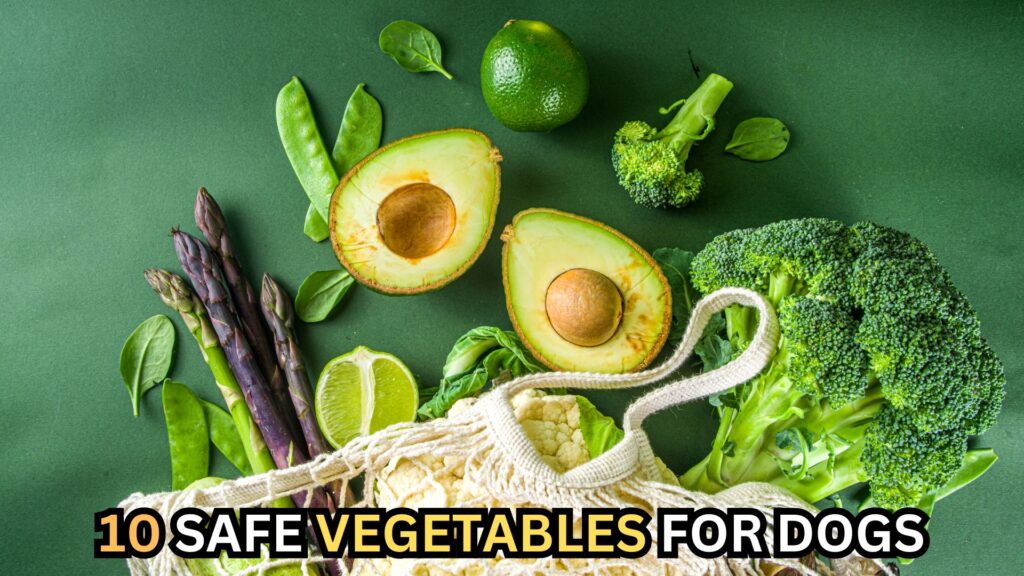
Safe Vegetables for Dogs: Top 10 Picks
Introducing vegetables to your dog’s diet can offer them a variety of health benefits, including improved digestion and a boost in vitamins and minerals.
However, it’s crucial to choose vegetables that are safe and provide nutritional value.
This list has been carefully curated to include vegetables that are both safe and beneficial for dogs, ensuring pet owners can make informed decisions about their furry friend’s diet.
1. Carrots
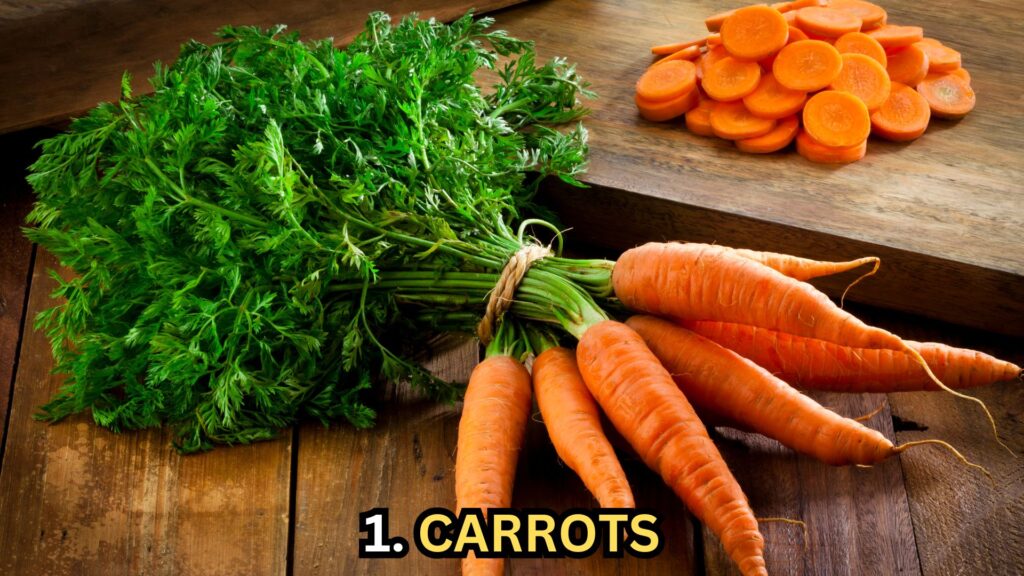
Carrots are a fantastic treat for dogs, offering a crunchy texture that’s great for their dental health. They are low in calories and high in fiber and vitamins, making them an ideal snack for dogs of all sizes.
Preparation tips:
Carrots can be served raw or cooked, but it’s important to cut them into bite-sized pieces to prevent choking. Raw carrots can also help clean your dog’s teeth as they chew.
2. Green Beans
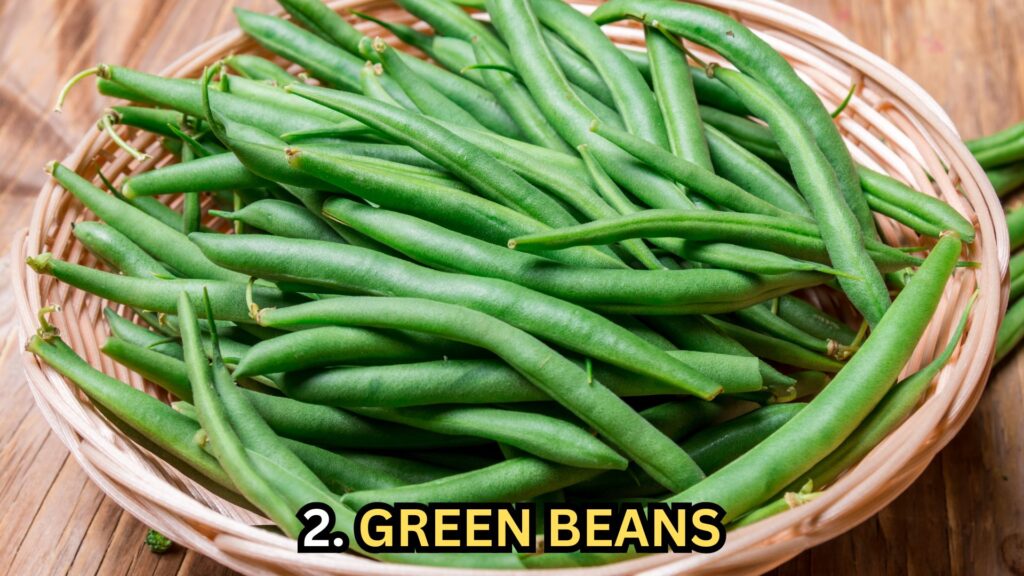
Green beans are a nutrient-rich vegetable that can be a healthy addition to your dog’s diet. They are packed with fiber, which can aid in digestion, and vitamins such as Vitamin A, C, and K.
Serving suggestions:
Green beans can be fed to your dog either cooked or raw.
However, ensure they are plain and free from any added oils or seasonings. They can be chopped into smaller pieces or served whole, depending on your dog’s size and preference.
3. Sweet Potatoes
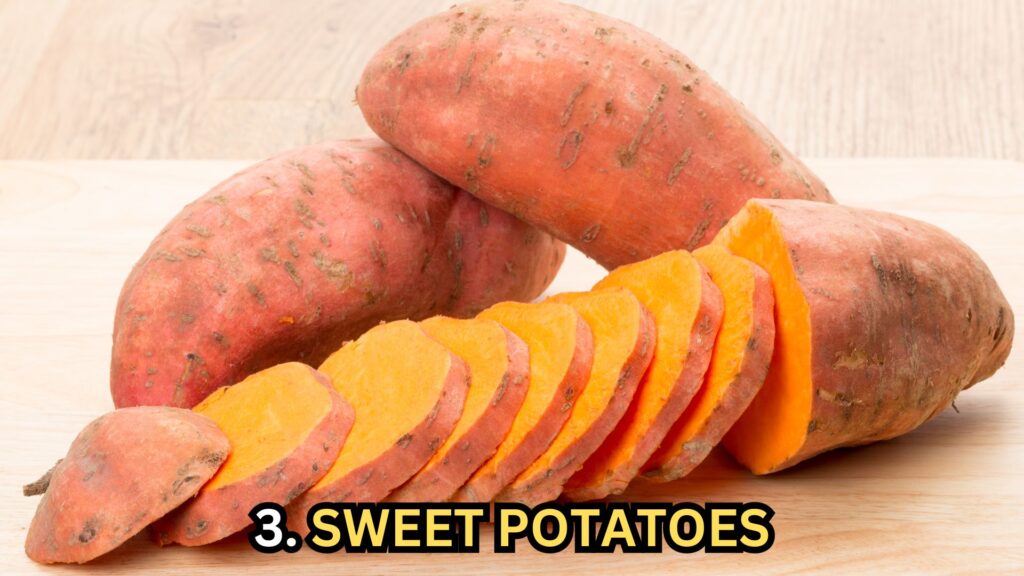
Sweet potatoes are not only delicious but also provide a wealth of health benefits for dogs. They are a rich source of beta-carotene, which converts to Vitamin A in the body and is essential for your dog’s vision, growth, and muscle strength.
Recommended preparation methods:
It’s best to serve sweet potatoes cooked and without any added sugar or spices. Boiling, baking, or steaming sweet potatoes before mashing them up is a safe way to include them in your dog’s meals.
Remember to introduce any new vegetable into your dog’s diet gradually to monitor for any adverse reactions.
4. Pumpkin

Pumpkin is highly beneficial for a dog’s digestion, providing a good source of fiber that can help with both constipation and diarrhea. It’s also rich in vitamins A, C, and E, as well as antioxidants and minerals like potassium.
How to serve:
Pumpkin can be given to dogs in both fresh and canned forms.
However, if opting for canned pumpkin, ensure it’s pure pumpkin and not pumpkin pie filling, which contains sugars and spices harmful to dogs. A few tablespoons mixed into their regular food can aid in digestion.
Remember, as with any new food, start with small amounts to ensure your dog’s system can handle it.
5. Cucumbers
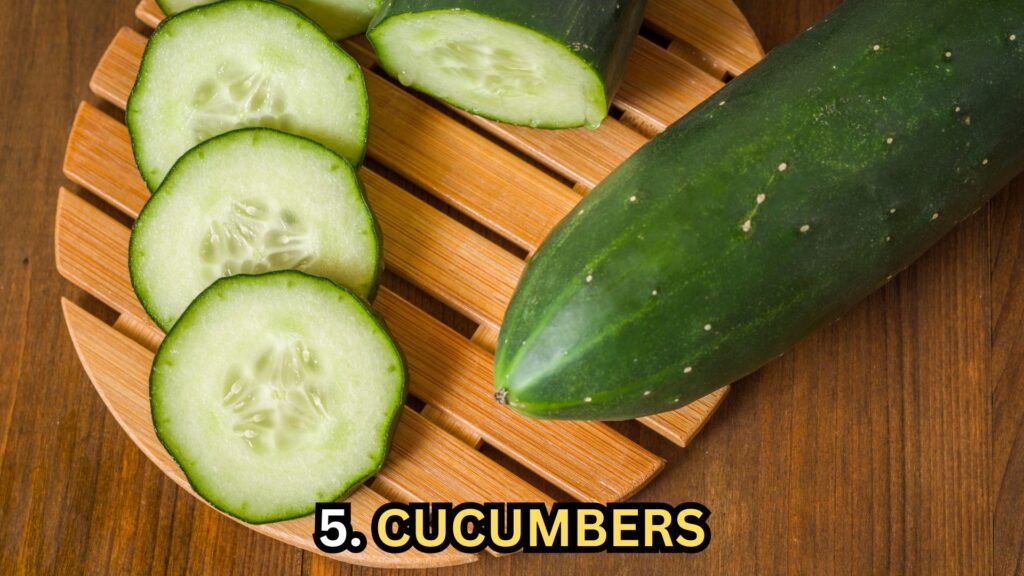
Cucumbers are an excellent low-calorie treat for dogs, especially those who need to manage their weight. They’re crunchy, hydrating, and full of vitamins K, C, and B1, as well as potassium, copper, magnesium, and biotin.
Portion control and preparation:
Cucumbers should be given in moderation and sliced into manageable pieces to prevent choking. They can be a refreshing treat, especially on hot days, but always introduce new foods slowly into your dog’s diet.
6. Broccoli
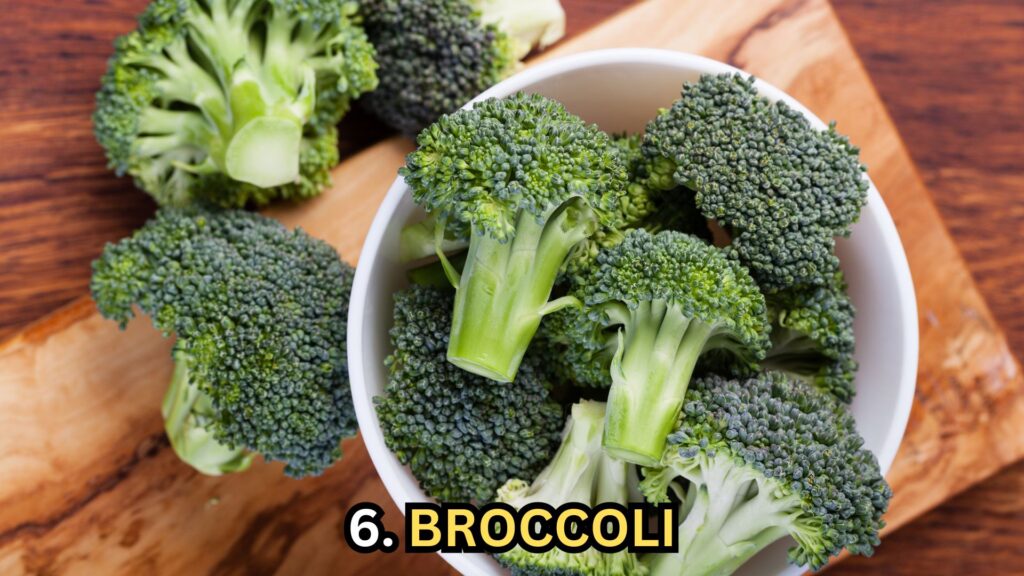
Broccoli is rich in fiber and vitamin C and is a low-fat vegetable that can be a healthy part of your dog’s diet. However, it contains isothiocyanates, which can cause gastric irritation in some dogs if fed in large quantities.
Precautions:
It’s recommended to keep broccoli to less than 10% of your dog’s daily food intake. Broccoli can be fed raw or cooked, but avoid seasoning or oils. Chop it into small, bite-sized pieces to reduce the risk of choking.
7. Spinach
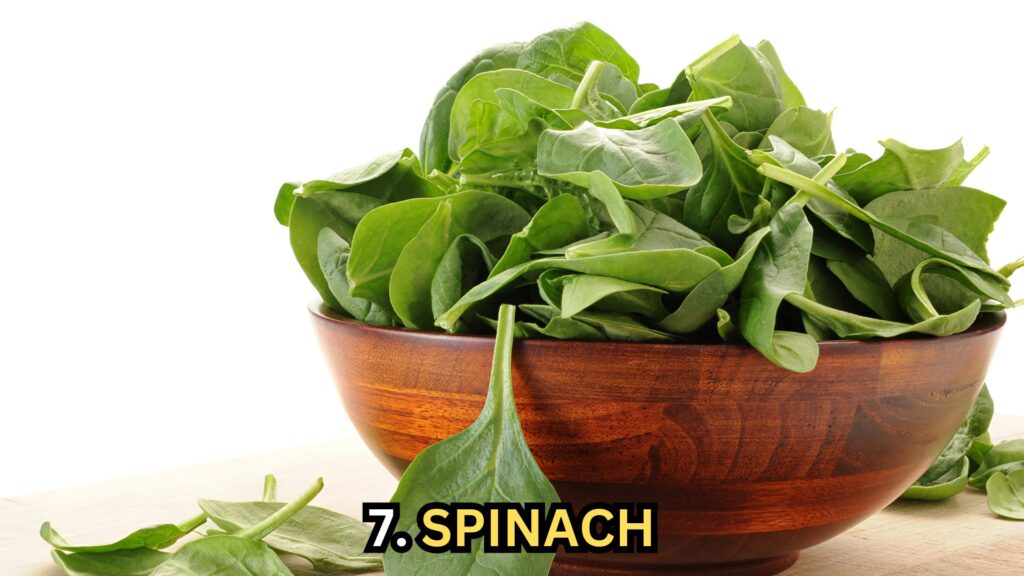
Spinach is packed with iron and antioxidants, making it a nutritious vegetable for dogs. It’s also a good source of vitamin K, magnesium, folate, and manganese.
Note on oxalates and moderation:
While spinach is healthy, it contains oxalates, which can lead to kidney issues in large quantities. Therefore, it should be given in moderation, especially to dogs with existing kidney problems.
8. Peas
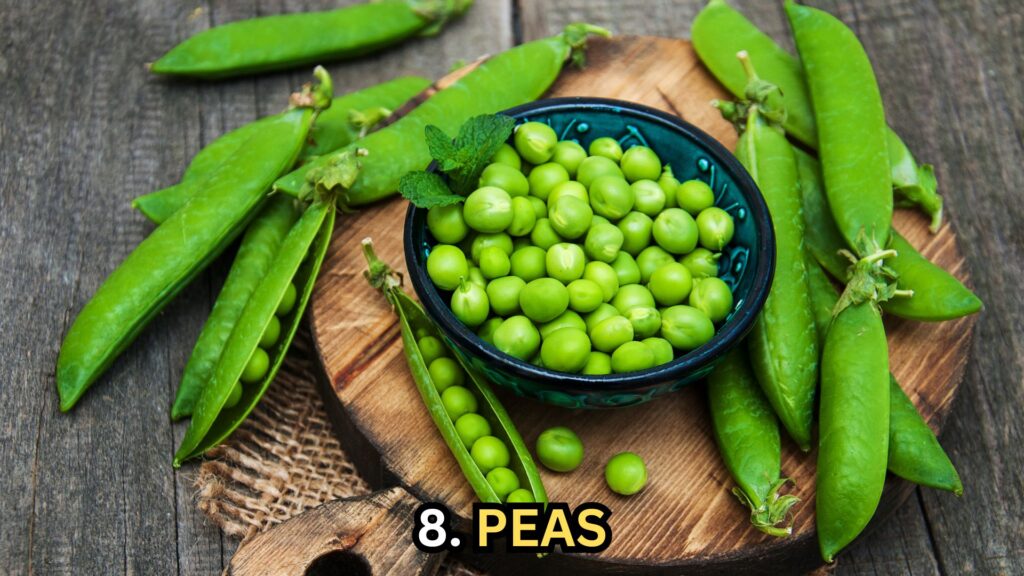
Peas are a great source of vitamins, including A, B, and K, and contain minerals like iron, zinc, and potassium. They’re also rich in protein and fiber. Peas can be fed to dogs fresh, frozen, or thawed, but never canned due to the added sodium and preservatives.
Variety and benefits:
There are many types of peas (garden, sugar snap, snow peas), all of which are safe for dogs. They can be a tasty and healthy treat, offering variety and nutrition.
However, as with any new addition to your dog’s diet, introduce peas gradually and observe for any adverse reactions.
Incorporating these vegetables into your dog’s diet can provide a range of health benefits, from improved digestion to better weight management.
However, it’s always important to introduce new foods slowly and in moderation, while observing for any signs of intolerance or allergic reactions.
9. Zucchini
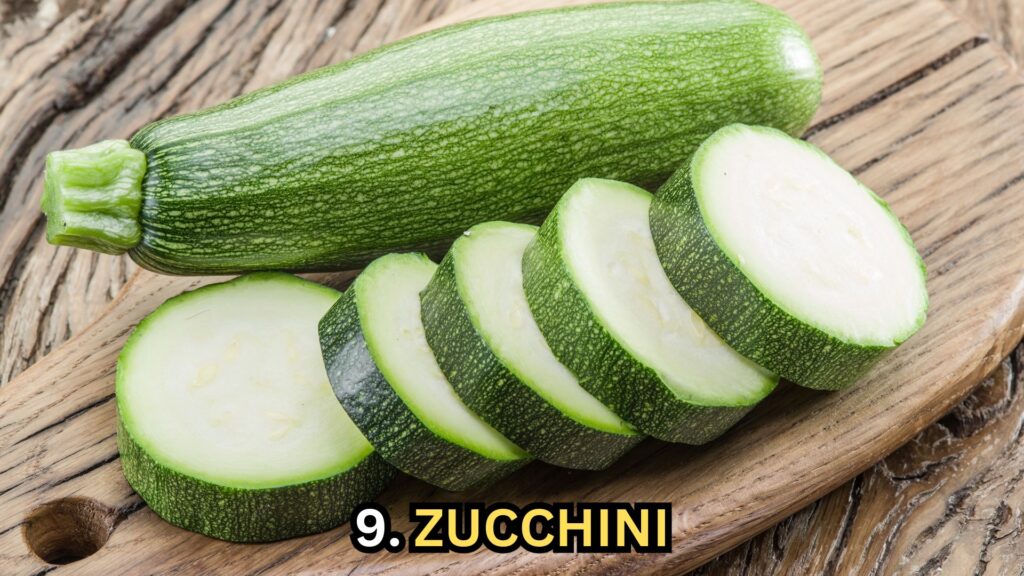
Zucchini is an excellent low-calorie treat for dogs, making it perfect for weight management or as a healthy snack. It’s high in dietary fiber and rich in vitamins B6, C, and K, as well as potassium and manganese.
Serving ideas:
Zucchini can be served raw, cooked, or steamed, without any added oils or seasonings. It can be sliced into small pieces or sticks depending on your dog’s size, making it a versatile addition to their diet. Always start with small quantities to ensure your dog digests it well.
10. Brussels Sprouts
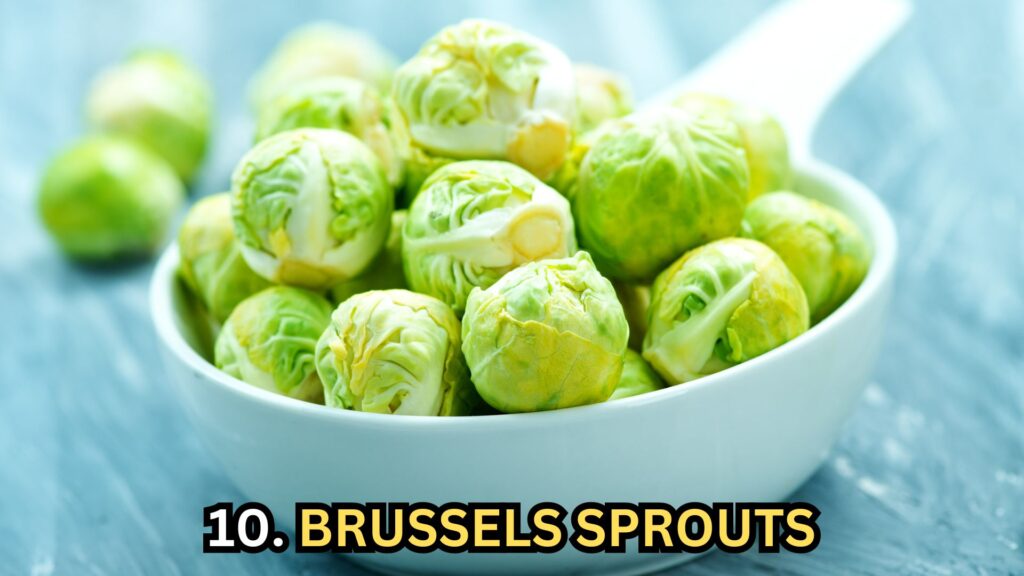
Brussels sprouts are packed with vitamins (such as K and C) and minerals, offering a nutritious boost to your dog’s diet. They also contain antioxidants that can help reduce inflammation and improve overall health.
Introduction to gases and moderation:
While beneficial, Brussels sprouts can cause gas in some dogs due to their high fiber content. It’s important to introduce them to your dog’s diet gradually and in small quantities to minimize any discomfort.
How to Introduce Vegetables into Your Dog’s Diet
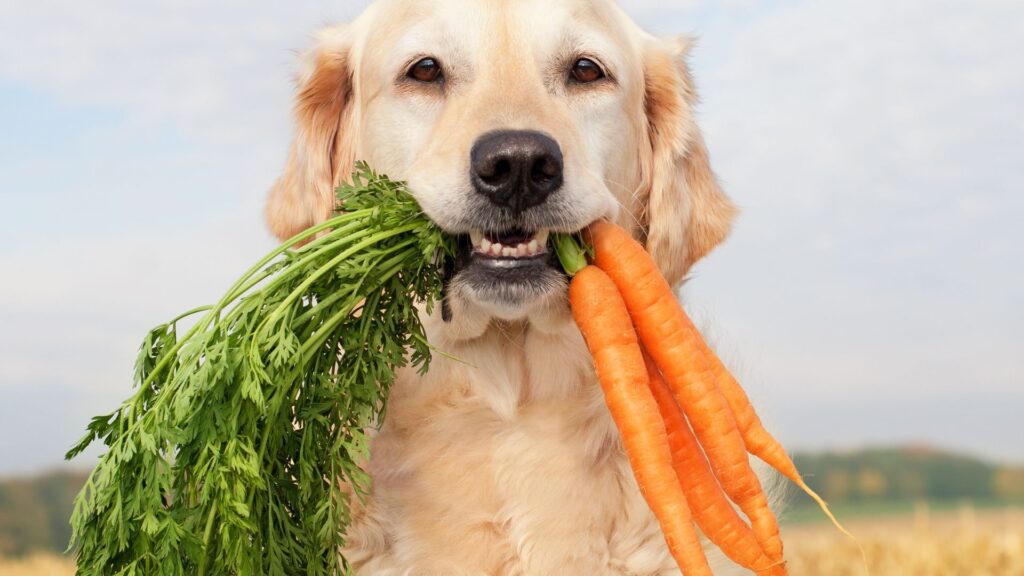
Introducing new vegetables into your dog’s diet should be done slowly and with care to avoid digestive upset.
Start with small amounts of one vegetable at a time and observe your dog for any signs of allergic reactions or intolerance, such as itching, gastrointestinal upset, or changes in appetite.
It’s also a good idea to consult with your veterinarian before making significant changes to your dog’s diet, especially if they have existing health issues.
Vegetables to Avoid
While many vegetables are safe and healthy for dogs, some should be avoided due to their toxic properties. Here’s a quick list of vegetables to keep away from your canine friend:
- Onions and Garlic: These can cause anemia by damaging red blood cells.
- Avocado: Contains persin, which can be toxic in large amounts.
- Tomatoes: The green parts of the tomato plant contain solanine, which can be harmful.
- Mushrooms: Some types can be toxic, so it’s safer to avoid them altogether.
- Rhubarb: Contains oxalates, which can affect the digestive, nervous, and urinary systems.
Feeding your dog vegetables can be a great way to supplement their diet with essential nutrients.
However, it’s crucial to do so responsibly by choosing safe vegetables, serving them in moderation, and monitoring your dog’s reaction.
This approach ensures that your dog benefits from the added variety and nutrition in their diet while avoiding potential health risks.
Conclusion
Incorporating vegetables into your dog’s diet can significantly enhance their overall health by providing them with essential vitamins, minerals, and fiber. The top vegetables that are both safe and beneficial for dogs include carrots, green beans, sweet potatoes, pumpkin, cucumbers, broccoli, spinach, peas, zucchini, and Brussels sprouts.
Each of these vegetables offers unique health benefits, from aiding in digestion to supporting weight management and boosting nutrient intake.
However, it’s crucial to introduce these vegetables gradually and in moderation to your dog’s diet, ensuring they are well-tolerated and do not cause any adverse reactions.
Always observe your dog’s health and consult with a veterinarian if you have any concerns about introducing new foods into their diet.
FAQs
Can all dogs eat the vegetables listed?
While the vegetables listed are generally safe for dogs, individual dogs may have different tolerances or allergies to certain foods. Some dogs might experience digestive issues with specific vegetables, even if they are considered safe.
It’s important to introduce any new vegetable in small amounts and observe your dog for any signs of discomfort or allergic reactions.
Consulting with a veterinarian before making significant changes to your dog’s diet is always a good practice to ensure the chosen vegetables are suitable for your specific dog.
How often can I give my dog these vegetables?
Vegetables should be considered a supplement to your dog’s regular diet and not a primary food source. They can be given as occasional treats or mixed into meals a few times a week, depending on the vegetable.
It’s essential to maintain a balanced diet that meets all of your dog’s nutritional needs. Start with small portions to see how your dog reacts and adjust accordingly, ensuring that vegetables do not exceed 10% of your dog’s daily food intake.
Are there any vegetables that are absolutely forbidden for dogs?
Yes, certain vegetables should never be fed to dogs due to their toxic properties. These include onions, garlic, chives, avocado, unripe tomatoes, and mushrooms from unknown sources.
These foods can cause a range of health issues, from gastrointestinal upset to more severe conditions like anemia or toxicity.
Always err on the side of caution and avoid feeding your dog any vegetables known to be harmful to canine health.


